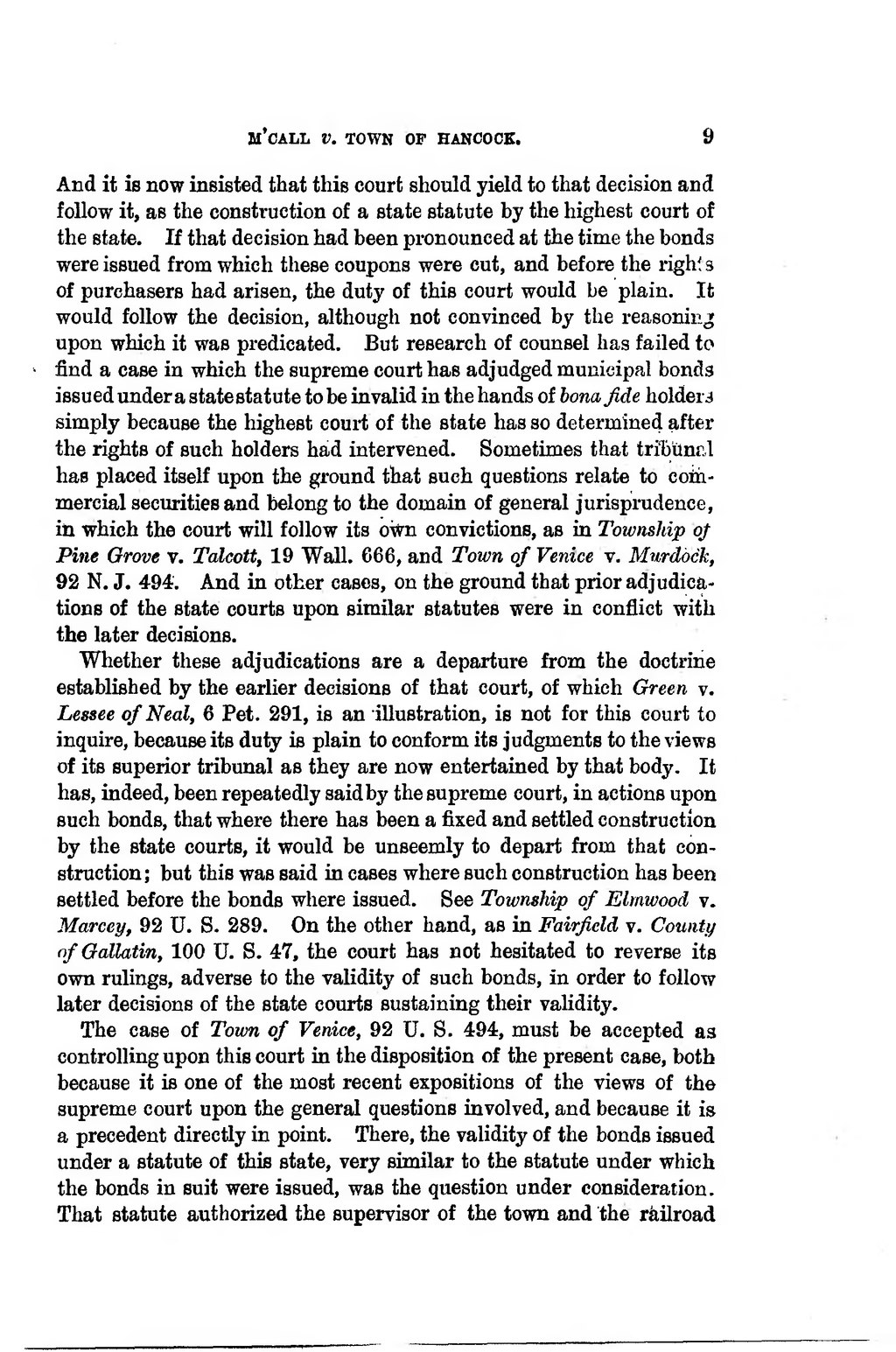M CALL V. TOWN OF HANCOCK. » �And it is now insisted that this court should yield to that decision and follow it, as the construction of a state statute by the highest court of the state. If that decision had been pronounced at the time the bonds wereissued from which these coupons were eut, and before the righfs of purchasers had arisen, the duty of this court would be plain. It would follow the decision, although not convinced by the reasonin^ upon which it was predicated. But research of counsel has failed to find a case in which the supreme court has adjudged municipal bonds issued under a state statute to be invalid in the hands of bona fide holderd simply because the highest court of the state has so determined after the rights of such holders had intervened. Sometimes that trihunr,,! has placed itself upon the ground that such questions relate to com- mercial securities and belong to the domain of general jurisprudence, in which the court will follow its own convictions, as in Township 0/ Pine Grave v. Talcott, 19 Wall. 666, and Town of Venice v. Murdock, 92 N. J. 494. And in other cases, on the ground that prior adjudica- tions of the state courts upon similar statutes were in conflict with the later decisions. �Whether these adjudications are a departure from the doctrine established by the earlier decisions of that court, of which Green v. Lessee ofNeal, 6 Pet. 291, is an illustration, is not for this court to inquire, because its duty is plain to conform its judgmenta to the views of its superior tribunal as they are now entertained by that body. It has, indeed, been repeatedly saidby the supreme court, in actions upon such bonds, that where there has been a fixed and settled construction by the state courts, it would be unseemly to depart from that con- struction; but this was said in cases where such construction has been settled before the bonds where issued. See Township of Elmwood v. Marcey, 92 U. S. 289. On the other hand, as in Fairficld v. Couiity nfGallatin, 100 TJ. S. 47, the court has not hesitated to reverse its own rulings, adverse to the validity of such bonds, in order to follow later decisions of the state courts sustaining their validity. �The case of Town of Venice, 92 U. S. 494, must be accepted as controlling upon this court in the disposition of the present case, both because it is one of the most recent expositions of the views of the supreme court upon the general questions involved, and because it is a precedent directly in point. There, the validity of the bonds issued under a statute of this state, very similar to the statute under which the bonds in suit were issued, was the question under consideration. That statute authorized the superviser of the town and the railroad ��� �
Page:Federal Reporter, 1st Series, Volume 10.djvu/21
This page needs to be proofread.
